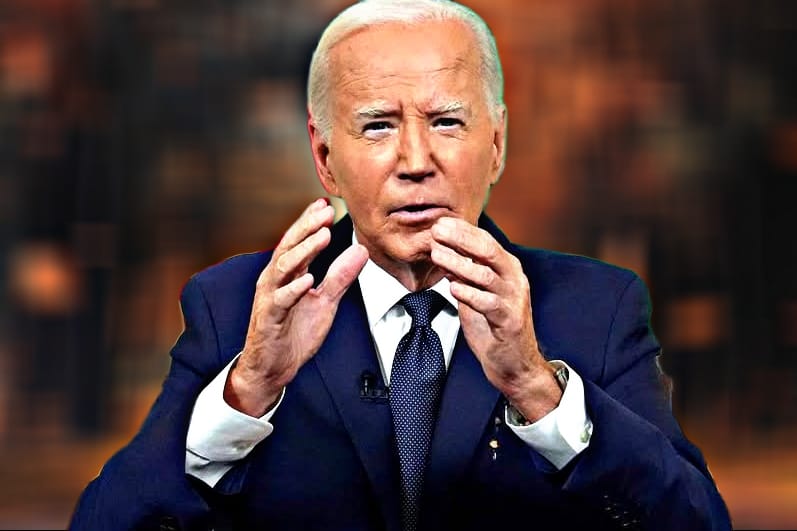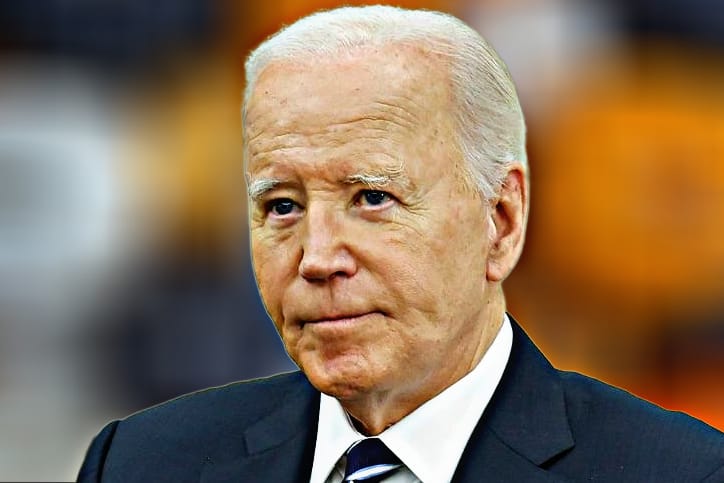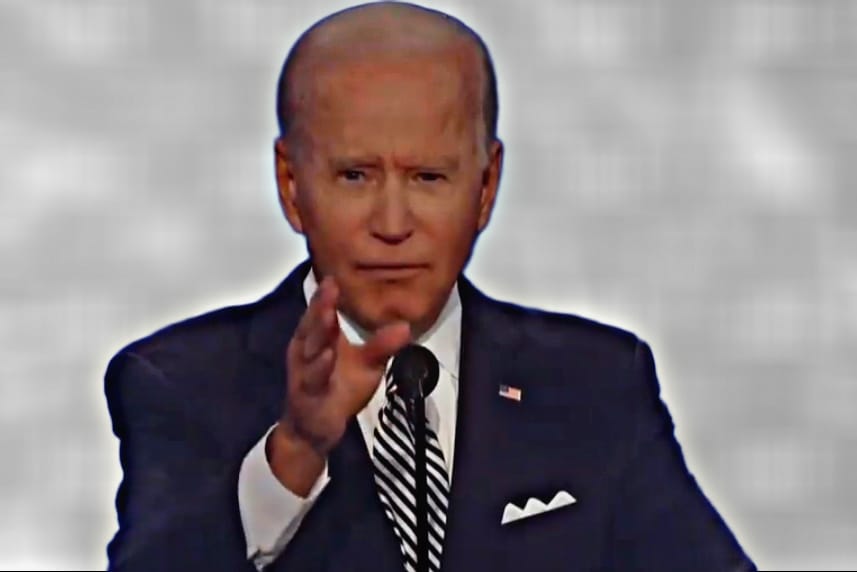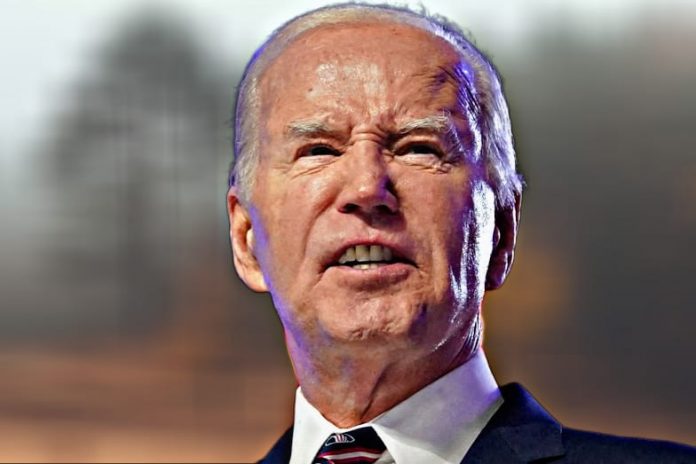Joseph Robinette Biden Jr., the 46th President of the United States, is a figure whose political career spans over five decades. With a career marked by resilience, bipartisanship, and an unwavering commitment to public service, Joe Biden has navigated personal and political challenges to reach the pinnacle of American politics. From his early days in Scranton, Pennsylvania, to his tenure as Vice President under Barack Obama, and ultimately to his election as President in 2020, Joe Biden journey is both a testament to his perseverance and a reflection of the changing landscape of American politics.
This article delves into the life and career of Joe Biden, exploring his upbringing, his long tenure in the U.S. Senate, his role in the Obama administration, and his historic election as President. Along the way, we will examine his policies, leadership style, and the key moments that have defined his presidency, along with the challenges and controversies that continue to shape his legacy.
Early Life and Upbringing: The Foundation of Joe Biden’s Character

Joe Biden was born on November 20, 1942, in Scranton, Pennsylvania, to Catherine Eugenia (Jean) and Joseph R. Biden Sr. His family faced financial struggles during his childhood, and Biden often spoke of the resilience and determination his parents instilled in him. Biden’s father, who worked as a used car salesman, emphasized the importance of hard work and integrity, while his mother taught him the value of kindness and empathy.
The Joe Biden family moved to Claymont, Delaware, when Joe was young, and it was there that Biden would spend much of his early life. Growing up in a working-class environment, Biden was no stranger to adversity. He struggled with a speech impediment, which caused him to be bullied during his school years. However, his determination to overcome this challenge would shape his character and drive him to succeed. Through hard work, Joe Biden eventually overcame his stutter, becoming a powerful orator, a skill that would later prove invaluable in his political career.
Joe Biden attended the University of Delaware, where he earned a degree in history and political science in 1965. He went on to study law at Syracuse University College of Law, earning his J.D. in 1968. Upon completing law school, Biden returned to Delaware, where he worked as an attorney and began to build the foundation for his future political career.
Joe Biden Political Rise: A Fresh Face in the Senate
At the age of 29, Joe Biden entered politics when he successfully ran for the New Castle County Council in 1970. His political career, however, truly began in 1972 when, at the age of 29, he was elected to the United States Senate, representing Delaware. This made him one of the youngest senators in U.S. history. Biden’s rise to the Senate was both a personal and professional triumph, but it was also marked by an unimaginable tragedy.
In December 1972, just weeks after his election, Joe Biden wife, Neilia, and their one-year-old daughter, Naomi, were killed in a car accident. His two sons, Beau and Hunter, were also in the car but survived the crash. The devastation of losing his family at such a young age left an indelible mark on Joe Biden, and he was forced to navigate the trials of personal grief while taking on the responsibilities of his new political role.
Joe Biden often recounts how this tragedy shaped his worldview and his understanding of empathy. He took the oath of office in a hospital room, with his sons by his side, a moment that marked the beginning of his long and dedicated service to the people of Delaware.
A Distinguished Senate Career: Advocacy and Bipartisanship

Joe Biden 36-year tenure in the U.S. Senate (1973-2009) would be marked by a commitment to both domestic and foreign policy issues. Known for his ability to work across party lines, Biden gained a reputation as a pragmatist and a consensus builder. His political philosophy was often centered on finding common ground and prioritizing the interests of the American people over partisan ideologies.
One of Joe Biden signature achievements in the Senate was his leadership on foreign policy. As the chairman of the Senate Foreign Relations Committee, Biden played a crucial role in shaping U.S. foreign policy during the late 20th and early 21st centuries. He was a strong advocate for NATO expansion and played a key role in crafting legislation related to arms control, international diplomacy, and counterterrorism efforts.
On domestic issues, Joe Biden worked on a wide range of policies, from criminal justice reform to healthcare and environmental protections. He was instrumental in passing the 1994 Crime Bill, which included provisions for crime prevention, support for law enforcement, and funding for prison construction. While the bill was controversial due to its provisions on mandatory sentencing, it remains a significant moment in Biden’s career, and he has since acknowledged the negative consequences it had on certain communities, particularly Black Americans.
Joe Biden legacy in the Senate was also shaped by his work on the Violence Against Women Act (VAWA), which he authored in 1994. The legislation was a landmark achievement in combating domestic violence and sexual assault, providing critical support for victims and improving law enforcement’s ability to prosecute perpetrators.
The Obama Era: A Partnership That Defined a Presidency
In 2008, after an unsuccessful run for president in 1988, Joe Biden found himself back on the national stage as the running mate of Barack Obama, a young senator from Illinois. The Obama-Biden ticket triumphed in the 2008 presidential election, with Obama becoming the 44th President of the United States and Biden assuming the role of Vice President. Their partnership would become one of the most significant and transformative in modern American politics.
Joe Biden role as Vice President was multifaceted. He served as an advisor to President Obama, especially on foreign policy and national security matters, and was often called upon to help navigate complex political situations. Biden was instrumental in pushing forward the Obama administration’s domestic agenda, including the passage of the Affordable Care Act (ACA), also known as Obamacare. His leadership on healthcare reform helped ensure that the ACA, one of the most ambitious social policies in U.S. history, became law in 2010.
On foreign policy, Joe Biden was a trusted confidant of Obama, particularly in matters related to military intervention and international relations. He played a key role in the decision-making process surrounding the 2009 surge in Afghanistan, the 2011 operation that led to the death of al-Qaeda leader Osama bin Laden, and in efforts to navigate the complexities of the Iraq War. Biden’s experience in international relations, coupled with his diplomatic approach, helped shape U.S. foreign policy during a challenging period.
Joe Biden legacy as Vice President also includes his leadership on issues related to civil rights, economic recovery, and climate change. Under his guidance, the Obama administration navigated the aftermath of the 2008 financial crisis, implementing a range of policies aimed at stimulating the economy and providing relief to Americans who had been impacted by the recession.
The 2020 Election: A Historic Victory Amid Crisis

After serving as Vice President for eight years, Joe Biden announced his candidacy for President in 2019, entering a crowded field of Democratic contenders. His decision to run came at a time of national division, with political polarization at an all-time high and the country facing numerous crises, including the COVID-19 pandemic, economic downturn, and social unrest related to racial inequality.
Joe Biden campaign centered on themes of unity, healing, and restoring the soul of the nation. He positioned himself as a leader capable of bridging divides and returning America to a sense of normalcy after the tumultuous presidency of Donald Trump. Throughout the campaign, Biden emphasized his experience, his empathy, and his commitment to protecting healthcare, tackling climate change, and addressing systemic racism.
In the 2020 election, Joe Biden defeated incumbent President Donald Trump, securing 306 electoral votes to Trump’s 232. The election was historic not only for the outcome but also for the voter turnout, which reached record levels despite the challenges posed by the COVID-19 pandemic. Biden’s victory was hailed as a win for democracy, with many Americans seeing it as a repudiation of Trump’s divisive rhetoric and leadership style.
Joe Biden inauguration on January 20, 2021, marked the beginning of his presidency. His inaugural address called for unity and a commitment to fighting the pandemic, restoring the economy, and addressing systemic inequality. His administration immediately set to work on a number of fronts, including passing a $1.9 trillion COVID-19 relief package, launching a national vaccination effort, and rejoining the Paris Climate Agreement.
Joe Biden Presidency: Challenges and Achievements
Joe Biden’s presidency has been defined by several key challenges, including the ongoing COVID-19 pandemic, the economic recovery, and the growing threat of climate change. One of his first major actions as president was signing the American Rescue Plan, a $1.9 trillion stimulus package aimed at providing financial relief to individuals, businesses, and healthcare systems affected by the pandemic.
Joe Biden administration has also focused on infrastructure reform, with the passage of the Infrastructure Investment and Jobs Act in 2021. This bipartisan bill allocated significant funds for repairing roads, bridges, and public transit systems, as well as investing in clean energy and broadband expansion.
On the global stage, Joe Biden has sought to restore America’s standing in the world, emphasizing diplomacy, alliances, and multilateralism. His administration has worked to rebuild relationships with NATO, the United Nations, and other key international partners, while also navigating tensions with countries like China and Russia.
However, Joe Biden presidency has not been without criticism. The chaotic withdrawal of U.S. troops from Afghanistan in 2021 was a major political and military setback, with critics arguing that it was poorly executed and left behind a humanitarian crisis. Additionally, the Biden administration has faced challenges in passing further domestic legislation, particularly as political divisions in Congress have continued to make it difficult to achieve consensus on major issues like voting rights, healthcare reform, and climate change.
Conclusion: Joe Biden’s Enduring Legacy
Joe Biden’s political career has been defined by a commitment to public service, a belief in bipartisanship, and a deep sense of empathy. From his early days in the Senate to his tenure as Vice President and ultimately his presidency, Biden has shown a capacity to evolve with the times while remaining grounded in his core values. His leadership during times of crisis, his work on key legislative achievements, and his ability to navigate a deeply polarized political landscape will ensure that his legacy continues to shape American politics for years to come.
As President, Joe Biden is tasked with confronting some of the most pressing issues of our time, from the COVID-19 pandemic and economic recovery to climate change and racial justice. His presidency has already been historic, and the coming years will likely continue to define the course of his legacy. Whether viewed as a figure of healing or a pragmatic leader navigating an era of division, Joe Biden’s impact on America is undeniable.

